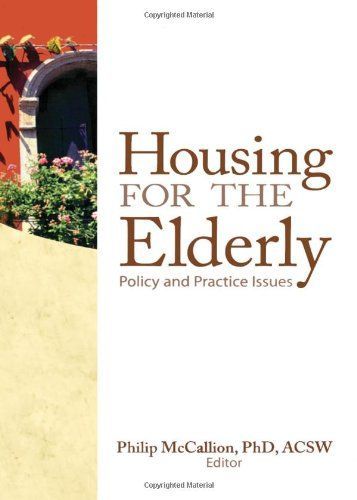
Housing for the Elderly Policy and Practice Issues
Find out how housing options for the elderly are changing—and not always for the better To maintain or improve their quality of life, many seniors in the United States will move to new locations and into new types of housing. Housing for the Elderly addresses the key aspects of the transitions they’ll face, examines how housing programs can help, and looks at the role social workers can play to ensure they remain healthy, happy, and productive as they age. Housing for the Elderly provides the tools to build a comprehensive understanding of how housing is changing to support the growing number of elderly persons in the United States. This unique resource examines a full range of housing options, including assisted-living communities, elder friendly communities, and homelessness; looks at the effects of the Olmstead Decision of 1999, which requires states to place persons with disabilities in community settings rather than in institutions; and summarizes current research on Naturally Occurring Retirement Communities (NORCs). The book also presents a historical perspective of housing issues for the elderly, with a special focus on the discrimination of African-Americans. Topics in Housing for the Elderly include: creating elder friendly communities homelessness among the elderly in Toronto housing disparities for older Puerto Ricans in the United States grandparent caregiver housing programs how the Olmstead Decision affects the elderly, social workers, and health care providers New York State’s experience with NORCs relocation concerns of people living in NORCs the integration of services for the elderly into housing settings-particularly low-income housing moving from a nursing home to an assisted-living facility assisted-living and Medicaid and much more! Housing for the Elderly is an essential resource for social work practitioners, administrators, researchers, and academics who deal with the elderly.